Bangladesh celebrates 50 years of independence
- Published
- comments
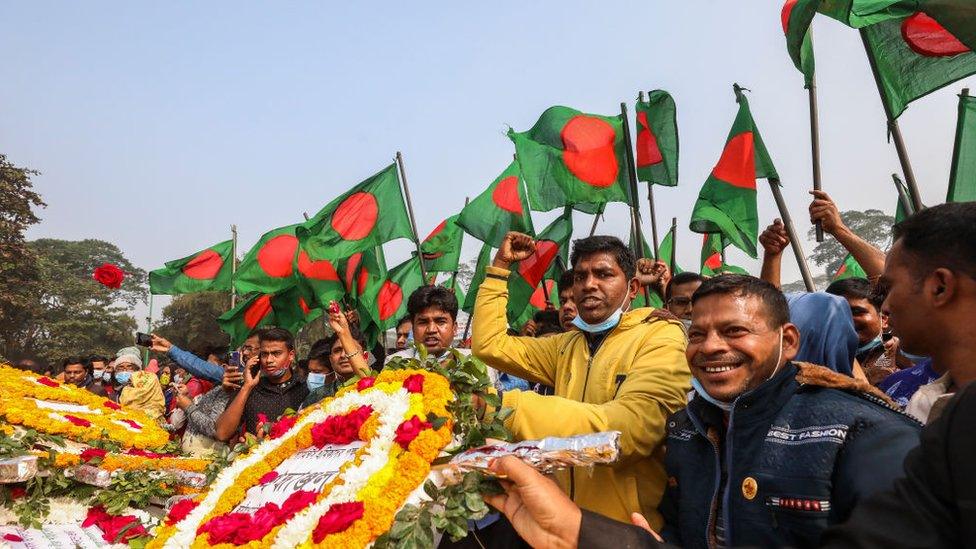
It's been 50 years since Bangladesh first began the fight for independence, which resulted in it breaking away from Pakistan to become a separate country.
Before this the area that is now Bangladesh was known as East Pakistan.
In March 1971 the liberation war started, which lasted for nine months and ended with Bangladesh officially having its status as an independent nation recognised on 16 Dec 1971.
Bangladesh Independence Day is celebrated on 26 March every year to mark the day Sheikh Mujibur Rahman - who would later become Bangledesh's first leader - declared independence, before the war began.
Bangladesh Independence Day: Being a British Bengal
To fully understand the background of this fight for freedom we need to go even further back in time to 1947, when India won its independence from the British.
At this time India was a huge country, even bigger than it is today, but after British rule there ended the country split into two new states: India and Pakistan, who would both rule themselves.
Pakistan was split across two areas - Pakistan and East Pakistan - which were 1,240 miles apart.
Partition happened in this way because the majority of Indian people were part of the Hindu religion, but the people living in the areas that became Pakistan and East Pakistan, were mainly Muslim.
Why did East Pakistan want to become independent?
There were a great many reasons but here are just a few of them.
Although the people living in East and West Pakistan were both Muslim, they had little else in common with different cultures and language.
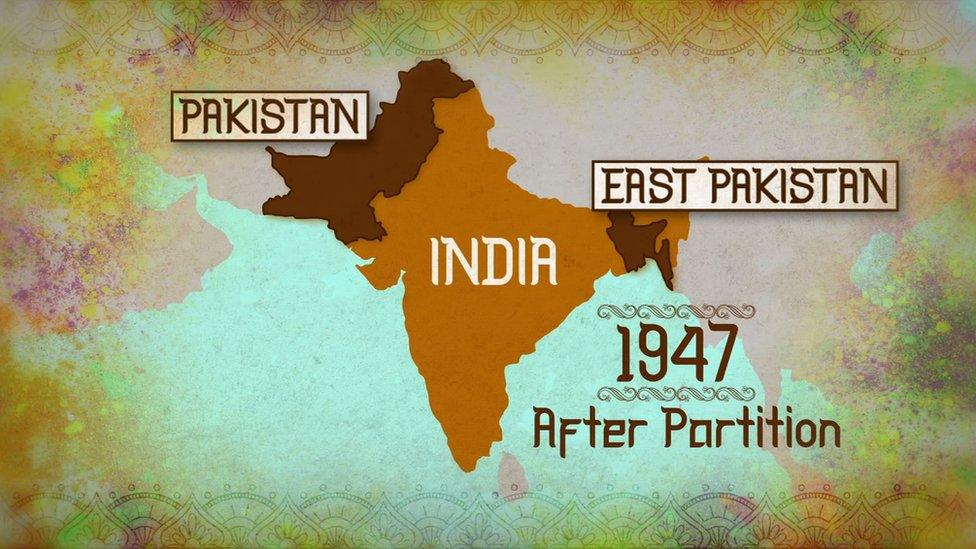
What was British India was divided into two independent states which would rule themselves: India, and Pakistan.
Most people in East Pakistan were part of a racial group called Bengali, and were the majority in Pakistan overall.
However they feared being dominated and controlled by minority group in West Pakistan.
Over time people living in East Pakistan began to feel more and more controlled by the government in West Pakistan.
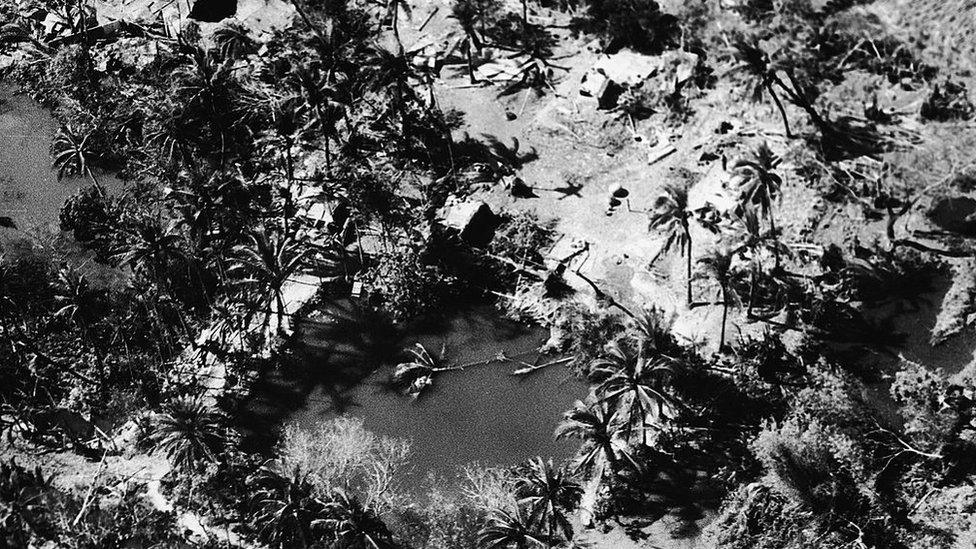
Cyclone Bhola caused devastation in November 1970
They also felt like they were being discriminated against when it came to being given resources or facilities.
In 1970 a cyclone hit East Pakistan, causing a lot of damage and the death of 500,000 people.
The central government of Pakistan was accused of being slow to respond and this caused further resentment.
How did the fighting begin?
The conflict was sparked after elections were won by an East Pakistani party, the Awami League, who wanted to give the region more control over how things were run there.
While the political parties and the military argued over forming the new government, many Bengalis started to believe that West Pakistan was deliberately trying to stop this from happening.
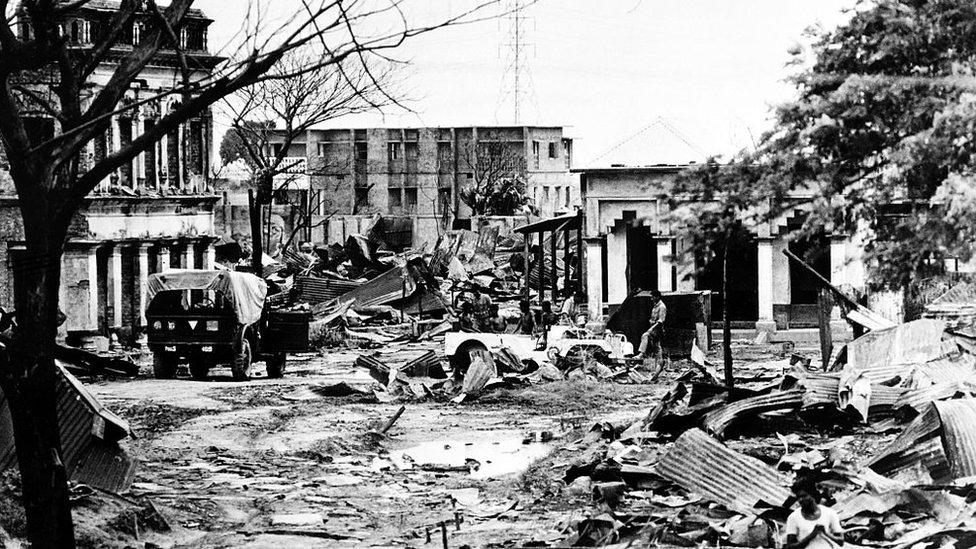
Streets in the city of Madhabpur were completely destroyed during the conflict
The Awami League's leader Sheikh Mujibur Rahman started a campaign, which involved breaking laws to show that they weren't prepared to accept this. Its supporters also attacked people who weren't Bengali.
Meanwhile, the Pakistani army flew in thousands of extra soldiers, and on the evening of 25 March attacked the Awami League, and other people it viewed as a threat.
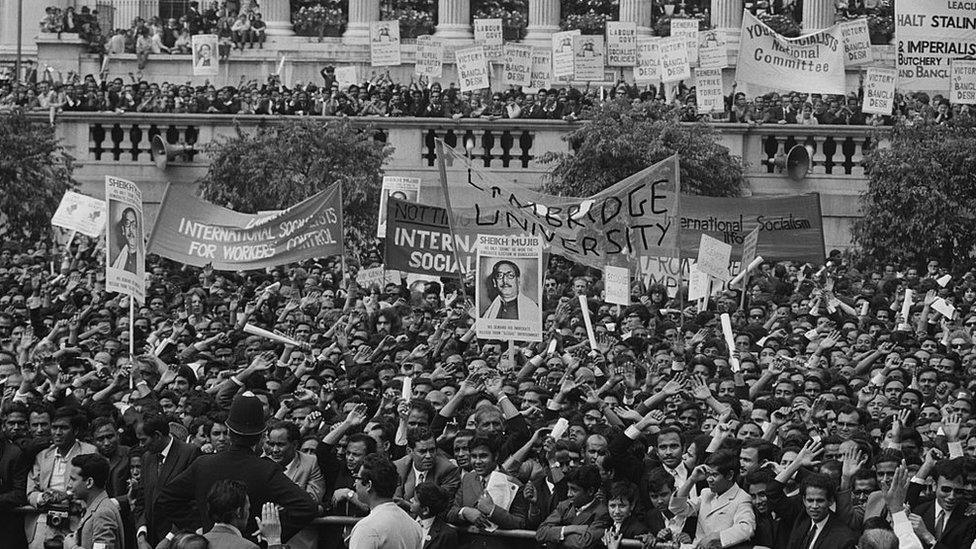
The war caught people's attention around the world with protestors in London calling for Bangladesh's independence to be recognised
This included people who were highly-educated, with one of the most well known attacks taking place at a university in the capital city of Dhaka, where soldiers killed many students and professors.
They also attacked the Hindu community, who made up about 20% of the population. Many of them were forced to become Muslim.
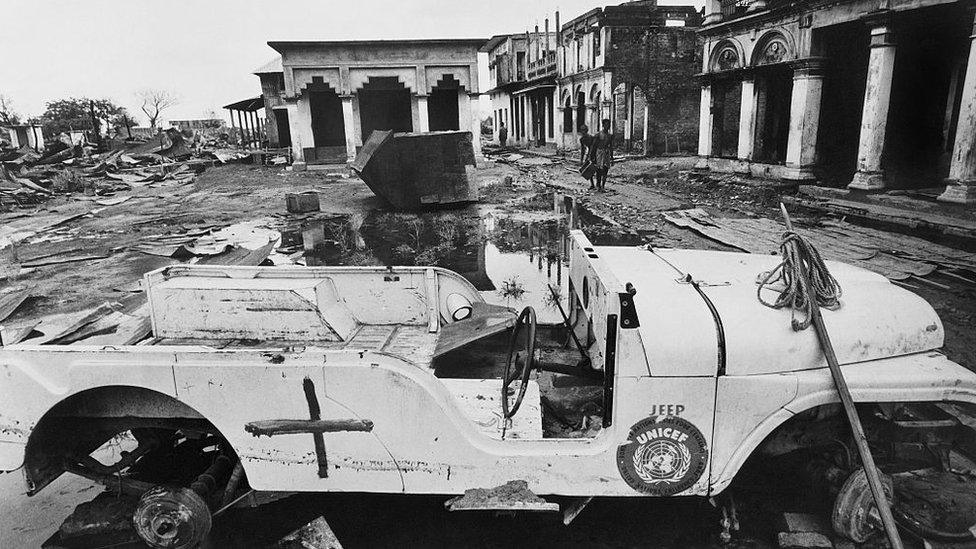
Streets was left unrecognisable after the fighting
Full-scale war broke out between the Pakistani army and a new unofficial liberation army called the Mukti Bahini, who wanted total independence for East Pakistan.
The fighting wasn't just between the soldiers. Ordinary people were attacked, robbed and taken from their homes, and killed.
How was the war won?
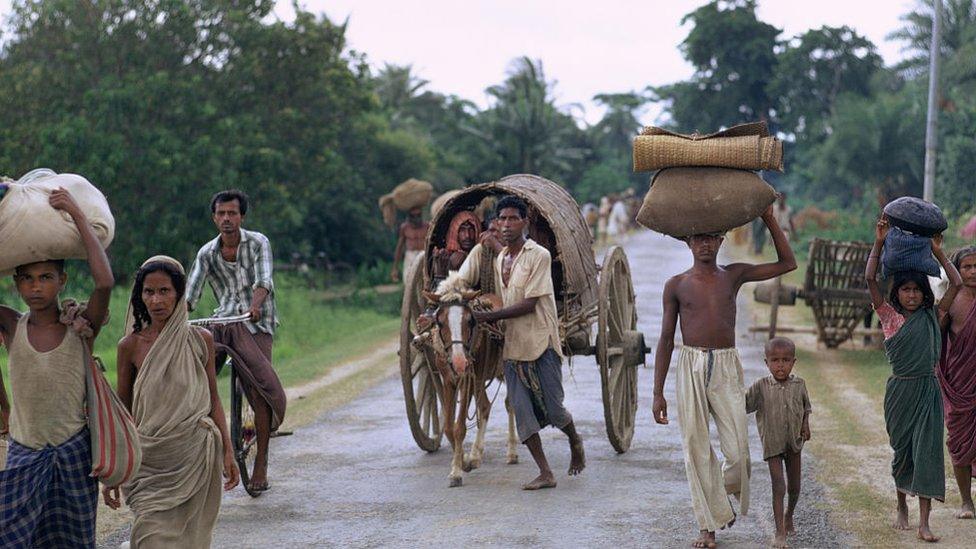
Many refugees came to Calcutta, the capital of West Bengal and India's largest city
Millions of Bengali people decided to leave East Pakistan in search of safety, travelling as refugees to India's Bengali state West Bengal.
Seeing this the Indian armed forces got involved in the conflict, taking the side of Bangladeshi forces in the final two weeks of the war and helping them to secure victory.
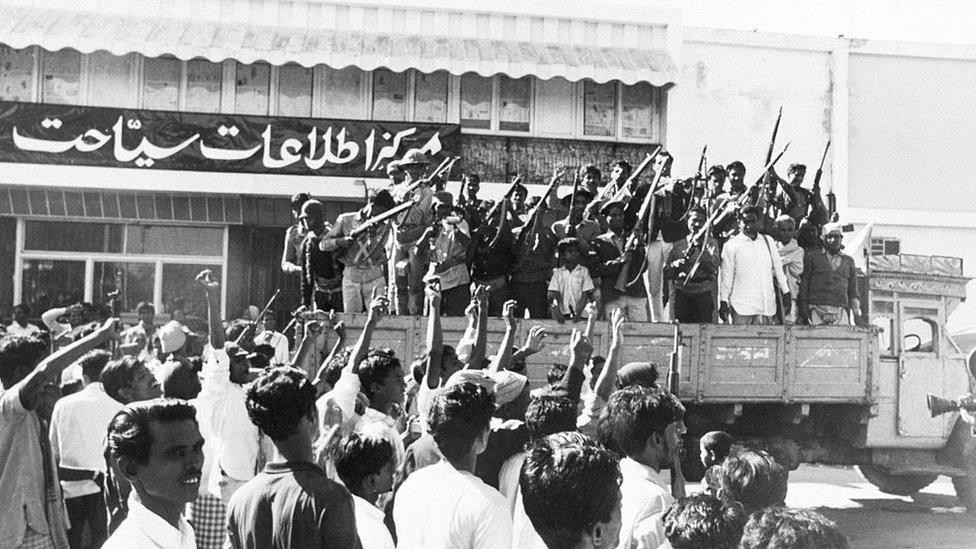
Mukti Bahini army celebrate in the back of their truck after the Pakistani army surrendered
In the end, the war lasted for nine months with the Pakistani army surrendering and the capital city of Dhaka being freed on 16 December 1971.
After gaining it's freedom, East Pakistan took on the new name of Bangladesh.
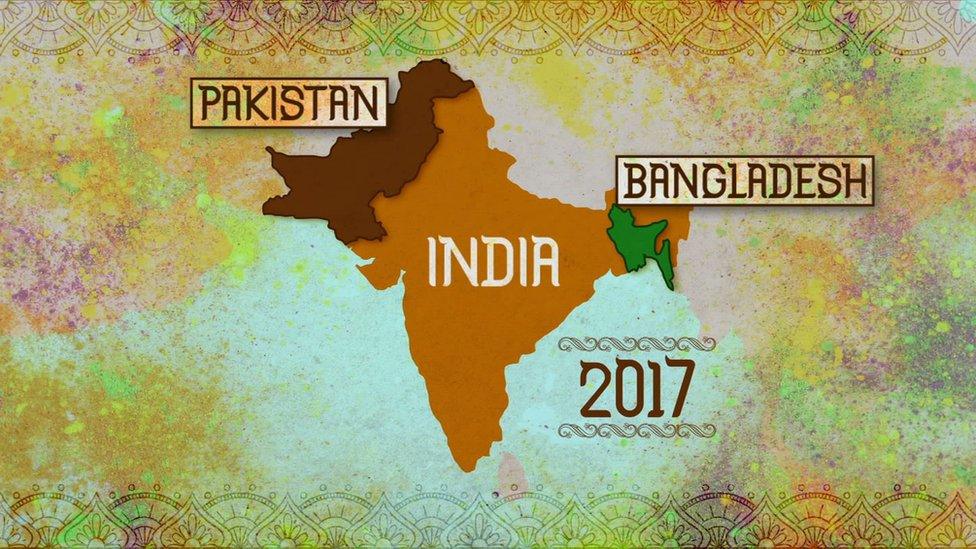
East Pakistan later split from Pakistan and became Bangladesh in 1971.
Nobody knows exactly how many people were killed, but it's certain that a huge number of people lost their lives.
Independent researchers think that between 300,000 and 500,000 died. The Bangladesh government puts the figure at three million.
What happened after the war?
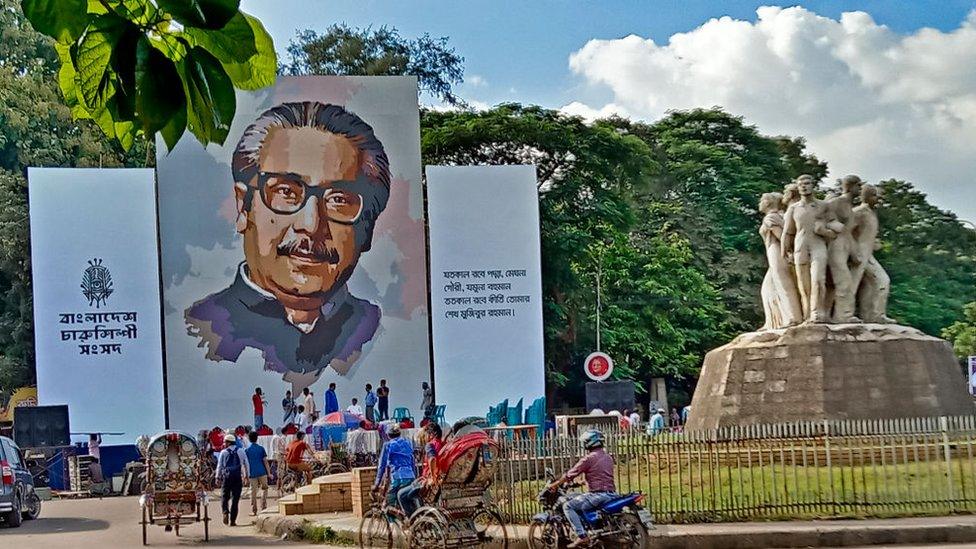
Sheikh Mujibur Rahman is considered the founder of Bangladesh and was the country's first President
In 1973 the first parliamentary elections were held and the Awami League won a landslide victory.
But in 1975 there was a military coup, where founding president Sheikh Mujibur Rahman and most of his family members were killed.
A 'coup' is a French word that literally means a blow or strike.
People often just say 'coup' when they're talking about a coup d'état which, in French, literally means a strike against the state.
This is when people illegally take action to overthrow the government - and often use violence or threats to make it happen.
After this Bangladesh spent 15 years under military rule and, although democracy was restored in 1990, the political scene remains unstable.
In more recent years Islamist extremism has increased in the country and there have been some attacks by violent groups, but the country is mostly tolerant and peaceful.
Many Rohingya refugees have been coming to Bangladesh from Myanmar seeking safety and a new life there.
The BBC's Asian Network has a day of special programmes planned all day if you want to find out more.
- Published15 August 2023
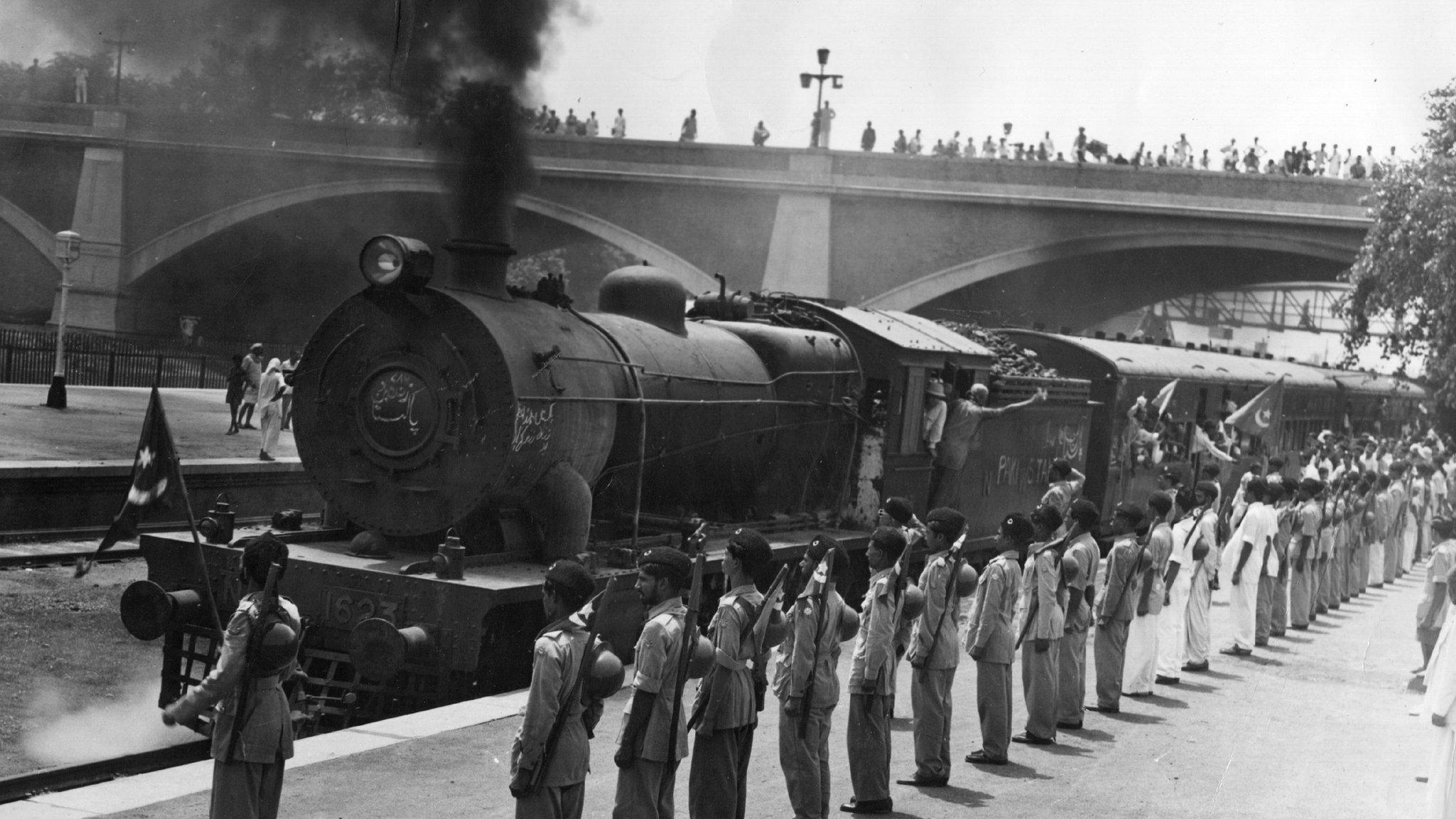
- Published8 August 2017
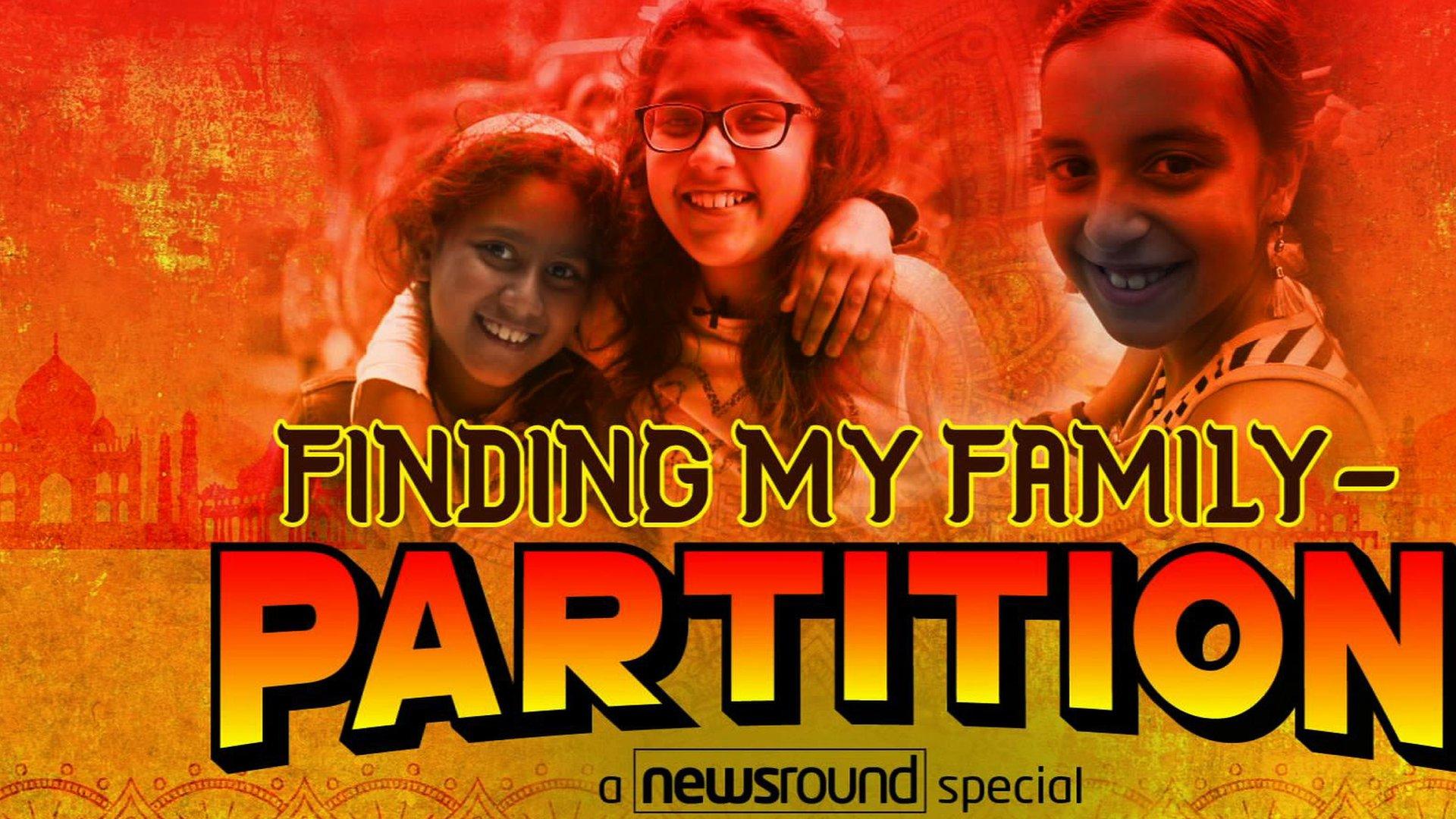
- Published15 May 2019

